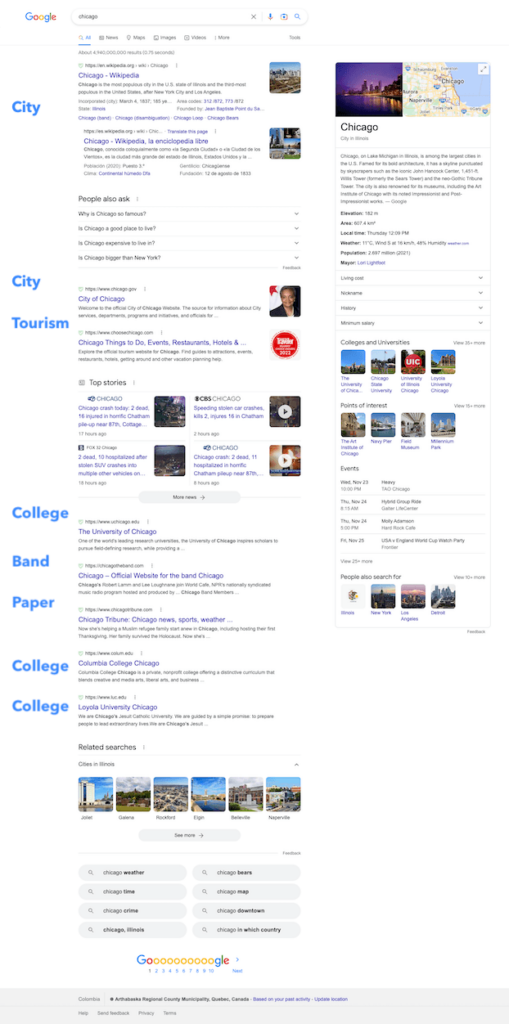Choosing the right topic helps MarketMuse generate useful insights. The best results come from topics that are the most specific.
For example, the term “what to do in Chicago” is a pretty specific topic and the search results are homogenous — they all cover different activities to do in the city of Chicago.

But if you use “Chicago” as your topic — it could refer to many things including:
- Tourism in the city.
- The city proper.
- The band.
- The newspaper.
- Anyone of three universities.
You can see this yourself by looking at the Google search results.

Even though MarketMuse patented topic modelling technology may search up to thousands of documents when creating a topic model, it’s unable to create one model that satisfactorily covers seven distinctly different topics.
As a rule of thumb:
- One word topics are almost always too general.
- Two- or three-word topics can be used depending on the context (e.g. content strategy)
- Four-words and plus is where you get consistently good results.
How to Pick a Topic for an Existing Page
Before you can optimize an existing page, you need to determine its topic. The hallmark of properly written content is that it addresses a specific subject. Occasionally, that subject can be hard to determine.
There are a couple of ways you can do this.
The first is to look for clues in the title, URL, and meta description. This alone should provide you with more than enough clues about the subject of the article.
But what if it doesn’t? More likely, what if there are a number of reasonable possibilities?
Check the topics the page ranks for by clicking on the page in Page Inventory and then clicking Ranking Topics. Look through the list to find the best fit.
What if the best fit isn’t good enough?
Take the best one and use Research to find a better alternative. Go to Topic Navigator and click on the Keywords tab to see a list of related terms. Search through this list to see find something better.
